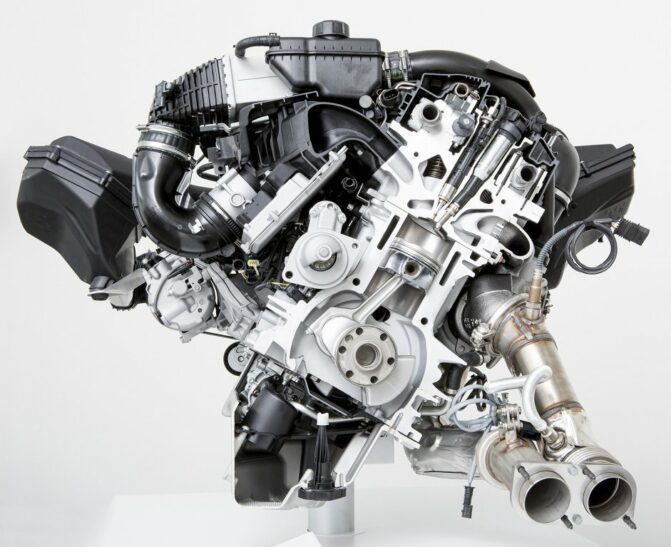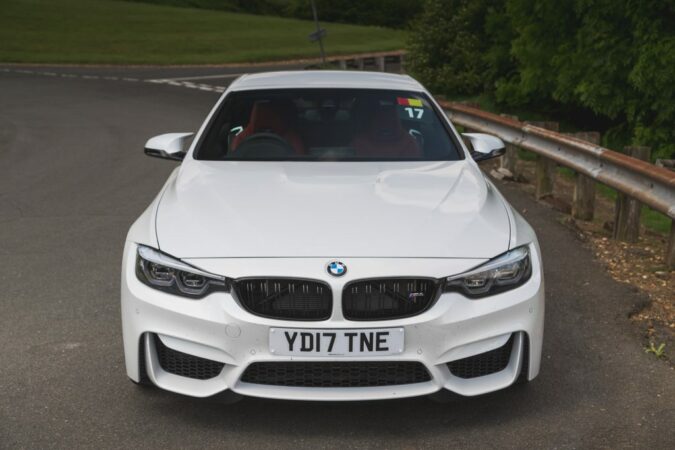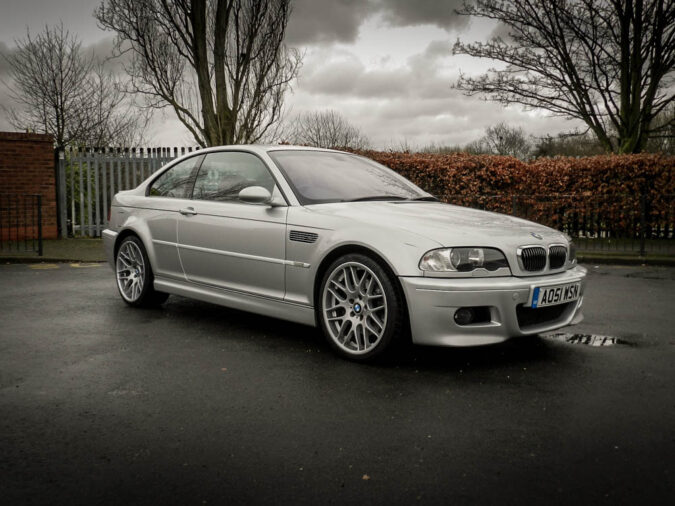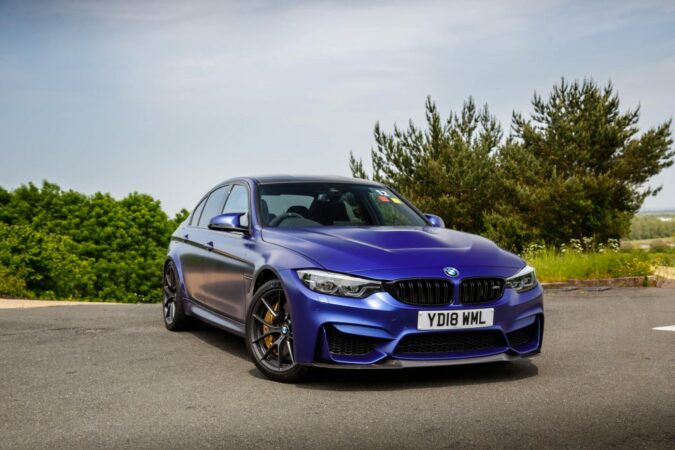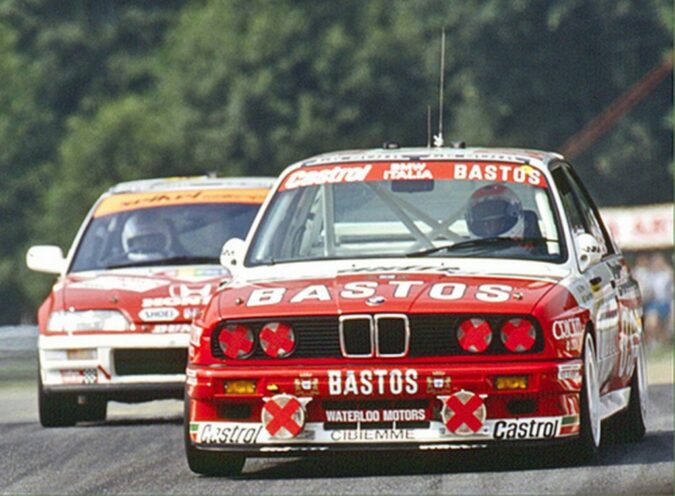As of now, BMW is known for making luxurious high-performance cars. BMW is known as the Ultimate Driving Machine for a reason. They have been creating some of the most renowned engines in history for many years. But which is the most reliable BMW engine?
Here we’ll take a look at the best BMW engines praised by engineers and enthusiasts all around the world. However, we will mostly be covering the modern BMW engines. Modern BMW engines are those that made their debut in vehicles built within the last 25 years. Anything older is considered a classic.
BMW Engine
History Of BMW
The German automaker BMW officially began operations on March 7, 1916, the same day that Bayerische Flugzeugwerke (formerly Otto Flugmaschinenfabrik) was founded. In 1922, this corporation adopted the name Bayerische Motoren Werke (BMW). The Bayerische Motoren Werke moniker, on the other hand, dates back to 1917, when Rapp Motorenwerke underwent a name change.
The BMW IIIa straight-six aircraft engine was BMW’s first creation. BMW continued to operate after World War I was over by making motorcycle engines, farm equipment, household goods, and railroad brakes. In 1923, the brand built its first motorcycle, the BMW R32.
In 1928, BMW acquired Fahrzeugfabrik Eisenach, a company that was constructing Austin Sevens at the time under license (under the Dixi marque). The BMW 3/15 was a rebadged Dixi that was the first vehicle produced under the BMW name. BMW increased its selection to include sports cars and larger luxury vehicles throughout the 1930s.
Growth Of BMW Into A Prominent German Automobile Manufacturer
The BMW New Class compact sedans were introduced in 1962, and this marked the start of BMW’s status as a top producer of sports cars. BMW increased its selection by introducing coupe and premium sedan variants throughout the 1960s.
The BMW 3 Series compact sedans, BMW 6 Series luxury coupes, and BMW 7 Series large luxury sedans were all debuted after the BMW 5 Series mid-size sedan line in 1972.
In 1978, the BMW M division unveiled a mid-engine supercar as its debut road car. The BMW M5 and BMW M3 came after this, in 1984 and 1986 respectively. BMW also debuted its first V12 engine in the 750i luxury sedan in 1986.
In 1994, the business bought the Rover Group, but the takeover failed and resulted in significant financial losses for BMW. BMW sold off the majority of the Rover brands in 2000, keeping just Mini. In 1998, BMW purchased the rights to the Rolls-Royce brand.
The company’s entry into the SUV sector came with the 1999 BMW X5, while the 1995 BMW Z3 added a mass-produced two-seat roadster to the lineup.
In 1980, they released the first mass-produced turbocharged gasoline engine (the M102). During the ensuing ten years, most engines made the move to turbocharging. The 2010 BMW ActiveHybrid 7 was the company’s first hybrid vehicle, while the 2013 BMW i3 city car was its first all-electric vehicle.
The 2014 BMW 2 Series Active Tourer multipurpose vehicle was BMW’s first front-wheel drive vehicle after years of building a reputation for athletic rear-wheel drive vehicles. Now that we know about how BMW became one of the most renowned automakers, let’s look at the best engines they’ve made.
Best BMW Engine
BMW made a lot of technological advancements between the 1917 inline 6-cylinder BMW IIIa aircraft engine and the modern S55 twin-turbo engine featured in the M4. Whether you enjoy them in a road car or beat the crap out of them on the racetrack, BMW engines have a proud history of producing some of the best engines ever made.
BMW engines have been named the coveted International Engine of the Year 62 times, more than any other manufacturer and twice as often as its closest competitors. The following are some of the most remarkable BMW engines ever produced.
Most Reliable BMW Engine: N52 Engine
The BMW N52 was a naturally aspirated straight-six gasoline engine produced from 2004 to 2015. The N52 made its debut on the E90 3 Series and E63 6 Series, taking the place of the BMW M54 engine. The N52 was the first water-cooled engine with an engine block made of a composite of magnesium and aluminum.
Additionally, in 2006 and 2007, it was named one of Ward’s 10 Best Engines. The BMW N53 was introduced in 2007, and this caused the N52 to start being phased out in European markets. However, because of the high quantities of sulfur in the gasoline, the N53 was ruled inappropriate in the United States.
The BMW N20 turbocharged four-cylinder engine started to replace the N52 in 2011 and continued doing so until the N52’s manufacture ceased in 2015. The N52 does not have a BMW M variant, unlike its predecessors.
Given that it is a naturally aspirated straight-six engine offered by the BMW market, this engine is among the most cutting-edge. Of all the naturally aspirated straight-six engines that BMW has ever built, it is the most advanced, produces the most output, and is quite simply the most refined.
Additionally, it is the final 6-cylinder BMW with multi-point injection. The hydraulic valve lash adjusters rattling is the most prevalent issue. This is a “ride-on” defect and the only repair option is an expensive head replacement.
These engines were so good that you didn’t need a turbo. Because purchasing one of these provided you with a silky smooth drive train, all the performance, fuel economy, and reliability you could possibly want. This one is unquestionably one of the greatest BMW straight-six engines ever
Most Reliable BMW Engine: M54 Engine
The M54 is a naturally aspirated straight-6 gasoline engine produced by BMW from 2000 to 2006. It was introduced in the E53 X5 and was the M52 engine’s replacement. The S54, which was utilized in the E46 M3, Z3 M Coupé/Roadster, and E85/E86 Z4 M, was the equivalent high-performance engine.
Following the release of the BMW N52 engine in 2004, the M54 was phased out. The M54 was on the Ward’s 10 Best Engines list from 2001 to 2003. Without a turbo, this engine was much simpler. But they weren’t dull because they were simple. N52 with 168 horsepower, 329 horsepower, and 228 horsepower are all available in the 320, 325, and 330 models, respectively.
This is what a wise engine choice entails. With strong, smooth, silky smooth linear power back fantastic engines, it is also highly trustworthy. Many individuals still discuss the reliability of these engines nowadays.
The technologically superior and more potent N52 has long since supplanted the M54 as the standard naturally aspirated inline-six engine. But two of the engines mentioned in the content of this list are really based on the M54. The basic design architecture that was first introduced to the market on the M54 was adopted by both the N54 and the renowned S54.
Additionally, the M54 demonstrated its value in the three-liter form, powering vehicles like the coveted E46 330i ZHP, the durable and dependable E53 X5 3.0, and others like the E39 530i.
Most Reliable BMW Engine: B58 Engine
Another amazing engine is the BMW B58. There is no other six-cylinder engine on the market that can match its mix of qualities. It’s possible that none of the other engines on the market can match it. So excellent. Is it good enough to imply that it outperforms all previous wonderful BMW engines?
It can be said so, but with a proviso. By eliminating extremely uncommon engines from the McLaren F1, like the S70/2 V12 engine. Only widely used production engines compared against it.
The BMW B58 is a straight-six turbocharged engine that went into production in 2015. The N55 was replaced by the B58, which debuted with the F30 340i. Following the B38 and B48 engines, the B58 is a member of BMW’s new modular engine family, which includes engines with 500cc (30.5 cu in) of displacement per cylinder.
Allow me to introduce the B58 engine to those who are not enthralled by the nerdy BMW enthusiasm. Many prominent BMW machines such as the BMW 745e plug-in hybrid, the X5 xDrive40i discussed above, and the BMW M240i are all powered by this 3.0-liter turbocharged inline-six engine.
BMW crams the B58 engine into practically everything. That isn’t odd in and of itself because standardization of vehicle engines is nothing new, regardless of brand. The B58’s range of capabilities, though, is astounding. It drives high-performance cars like the Z4 M40i, X3 M40i, M240i, and M340i.
The BMW 540i, the X5 xDrive40i, and even the incredibly heavy X7 xDrive40i were also among the standard luxury vehicles powered by this mill. Additionally, it is economical and smooth enough to be used in plug-in hybrid vehicles like the BMW X5 xDrive45e and the 745e.
Most Reliable BMW Engine: N54 Engine
From 2006 through 2016, BMW produced the N54, a twin-turbocharged straight-six gasoline engine. Since the 1986 discontinuation of the BMW M106’s restricted manufacturing, it is BMW’s first turbocharged gasoline engine that was mass produced. The N54 was introduced in the 335i model of the E90/E91/E92/E93 3 Series lineup during the 2006 Geneva Motor Show.
The N54 was slowly discontinued after the 2009 debut of its BMW N55 replacement. The E89 Z4 roadster, which was built until 2016, is the last vehicle to be powered by the N54. The N54 has won three consecutive Ward’s 10 Best Engines honors and six consecutive International Engine of the Year titles.
The N54 is a twin-turbocharged, direct-injection engine that produced 300HP/300TQ at just 8PSI straight out of the factory. Around 380 horsepower and 400 lb-ft of torque may be produced with a straightforward ECU flash/tune. Because the internals of this motor is forged, a few modifications can unleash incredible power.
An N54 can deliver over 700HP to the wheels with an improved twin-scroll turbocharger and a few bolt-on modifications.
Nearly all of the frequent problems with the N54 are most often caused by the accessories rather than the engine itself. Unless the car was operating at extremely high boost levels or was tuned incorrectly, you won’t often read or hear of spun rod bearings or experience a timing chain failure.
N52 Vs N54
BMW was able to refine several parts of the N52 engine during the course of manufacture thanks to the lengthy production history. The N52 still experiences a good number of typical reliability issues, though.
However, the N52 has proven to be more dependable than its larger sibling, the N54, thanks to the engine design. Drivers of the N52 won’t have to worry about these two typical N54 problems because the N52 lacks an HPFP or direct injection.
Most Reliable BMW Engine: N55 Engine
2009 saw the start of manufacturing for the BMW N55, a turbocharged straight-six gasoline engine. The older N54 engine was superseded by the N55, which debuted in the F07 5 Series Gran Turismo. It was also the first straight-six engine from BMW to use a twin-scroll turbocharger. Additionally, from 2011 to 2013, it earned three in a row from Ward’s 10 Best Engines.
The N55 engine started to be phased out in 2015 after the debut of the BMW B58 engine. The S55 engine, which powers the F80 M3, F82 M4, and F87 M2 Competition/CS, is the upgraded version of the BMW N55 made by BMW M GmbH.
The N55 made this list because it established the validity of a direct-injected and turbocharged BMW straight-six, which has since been supplanted by the modular and more potent B58. The N54 was the first BMW engine to market with these technologies, using individual twin turbos and piezo-style injectors. It has since become the option for people intent on a high-power build.
The initial N54 had some problems of its own and the fuel injector revision number is already in the double digits now. The N55 quickly established itself as a pillar of the BMW brand, even more so when the base naturally aspirated N52 was replaced by the N20 turbocharged four, in contrast to the N54, which largely borrowed from the previous naturally aspirated M54.
S55 Engine
2013 saw the release of the final BMW M-car with a normally aspirated V8 engine. The S55, the first mass-produced M Division engine with a turbocharger, was responsible for its death. The S55’s launch was a significant departure from the normal BMW M vehicle engines.
The S55 was a fantastic engine and a strong foundation for the forced-induction engines that are likely to power the M vehicles in the near future, so enthusiasts had little cause for complaint.
The S55 is the high-performance version of the N55 engine. BMW debuted the S55 in the F80 M3 and F82 M4 at the end of 2013, and the engine later appeared in the F87 M2 Competition/CS.
Although the N55 is the S55’s base, they don’t have much in common. Yes, measurements like the 84 mm bore, 89.6 mm stroke, and 2,979 cc displacement is the same, but the two engines’ constructions could not be more dissimilar.
The N55 has a single twin-scroll turbocharger, which divides the exhaust housing into two “scrolls,” but the S55 has two turbochargers. This is just one difference between the two engines’ turbos. A closed-deck engine block, an updated cooling system, and lighter and more durable engine components are among the further improvements over the N55.
The S55 used the manufacturer’s “Valvetronic” and “Double-VANOS” valve timing and valve lift technologies in addition to the twin-scroll turbocharger, enabling linear power delivery across the rev range. Over its career, the S55 was produced in many variants.
Peak power ranged from 275 horsepower to 493 horsepower depending on the vehicle it was powering. These incarnations stand out for having a meaty rev-band (that rises above 7,500 rpm) that perfectly balances low-end torque and high-revving power output.
Most Reliable BMW Engine: N55 Vs B58
We are frequently questioned about the differences between the N55 and B58 units. Technically speaking, N55 is an open deck while B58 is a closed deck, and there are many more variances as well. B58 is water-air charge-cooled, while N55 is air-intercooled. Despite the fact that both engines are 3.0 single turbo 6-cylinder machines, very few parts are interchangeable.
But in the end, what the majority of end consumers actually want to know is how the power, torque, and power distribution varies across the rpm range. The B58 offers significant advantages over the N55 from relatively early in the rpm range and maintains these advantages throughout the rev range.
Additionally, the B58’s torque output will certainly vary greatly throughout the rpm range. The B58 accelerates somewhat quicker and produces more torque over the whole rpm range. Both engines have very comparable boost thresholds, and their pre-boost torque outputs are fairly similar. In conclusion, power gains are superior to the B58 at every stage, all the way to redline.
BMW Reliability
Most Reliable BMW Engines
One dependable BMW engine, the N52 inline-6 featured in the E90 325i, 328i, and 330i, has already been covered in detail. This engine isn’t ideal, but because it isn’t turbocharged, it doesn’t have the issues of the current N54 engine. Additionally, the N52 is free of the rod-bearing problem that plagued the E90 M3.
The M54 inline-6 BMW engine, which we have studied in depth, is another dependable contemporary BMW engine. This engine is found in the 2000–2006 E46 3 Series, as well as modern Z3 and Z4 roadsters and X3 and X5 SUVs. It has a reputation for performing reliably even after running a great deal of distance.
The M44 4-cylinder engine, which can be found in the 1996-1999 BMW Z3 and E36 318ti, is the last option. According to UnixNerd, the M44 is descended from the M10 4-cylinder used in the E30 3 Series and was preceded by the M42 and M40 engines.
Best BMW For Tuning
The two greatest BMW engines for someone seeking real horsepower are the N54 and S55.
I firmly feel that turbocharged engines, as opposed to electric engines, represent a better prospective future for vehicle engines as emission regulations continue to get more stringent.
There must be a firm pushing the frontiers of smaller, more efficient turbocharged engines that are nonetheless strong and thrilling to drive in order to save car enthusiasts from a dull future. In our view, BMW is already doing that. The BMW N54 and S55 engines are prime examples of what turbocharging is capable of.
It’s nothing to growl at when three-liter inline-six engines produce 700+ horsepower using basically factory parts. There are currently several excellent turbo engines available. But few can handle that level of power without considerable internal engine changes or displacement increases.
The N54 and S55 are the two turbocharged 6-cylinder engines from BMW that, in our opinion, are now being produced at the top level in the world.
Facts: Top 6 Most Reliable BMW Engines Ever
- BMW’s B58 engine is a turbocharged straight-six engine that began production in 2015 and has been named Ward’s 10 Best Engines multiple times.
- The N54 and N55 engines had issues with waste-gate rattle, HPFP failures, or fuel injector failures, but the B58 engine is more reliable.
- The M20 engine is an old-school naturally aspirated straight-six engine, which ran from 1977 to about 1993, and is known for being a true driving experience.
- The M50 engine is a naturally aspirated inline six-cylinder engine that came in various states of displacement and was the first engine to feature BMW’s variable valve timing system.
- The S62 engine is a naturally aspirated V8 engine that produces 394 horsepower and is known for its power and reliability in one package.
- The N52 engine is a naturally aspirated straight-six engine that is among the most advanced, refined, and developed of all the naturally aspirated straight-six engines that BMW has ever produced.
Most Reliable BMW Engine: In Conclusion…
BMW has designed and manufactured some of the most renowned engines ever. BMW engines are at the top of many enthusiasts’ driver’s wishlists due to their balance of rapid revving and unfettered performance with surprising smoothness. Few manufacturers have achieved as much widespread and diverse success in motorsports as when it comes to racing.
FAQs On The Most Reliable BMW Engine
If you’re curious to learn more about the most reliable BMW engine, our FAQs here might help…
Are BMWs Reliable
Fortunately, ratings of BMW reliability from several organizations support their excellent reputation. Customer Reviews states that every BMW in the lineup received an above-average score. The i3 electric car and the X6 midsize SUV are BMW’s most reliable models. The brand as a whole is ranked seventh.
How Long Do BMW Engines Last
With the right care, almost any BMW has the ability to last up to 200,000 or even 250,000 miles. However, there will always be outliers that go even longer. Starting off on the right foot is simple since every new BMW comes with free factory-recommended maintenance through BMW Ultimate Care.
Which BMW Series Is Best
The 3 Series is the best-all-around BMW because of its versatility, sporty reputation, and affordability. Anyone who requires a sleek and practical vehicle to suit their daily demands should choose it.
Which BMW Is The Most Reliable
The most dependable BMW is the E90 3-Series. Although the BMW E90 3-Series without a turbocharger isn’t the most powerful, it is the most dependable. Bimmer Life believes BMW’s N52 engine is one of the most dependable motors BMW has ever produced. It was utilized in the 325i and 328i models of this generation.
Is BMW Or Mercedes More Reliable
German automakers Mercedes Benz and BMW are both renowned for the quality of their designs and reliability. However, sales numbers show that Mercedes Benz is more dependable than BMW. Compared to BMW, Mercedes Benz sells more cars and has factories on all five continents. BMW is far behind in terms of the dealer network and after-sales support.
Are BMWs Expensive To Fix
BMWs are expensive to maintain. BMWs are by far the most expensive car manufacturer to repair, claims Your Mechanic. The competition is not even close. With an average maintenance cost of $17,800 over ten years, BMW comes at number one place. Mercedes-Benz came in second with an average maintenance cost of $12,900 during a 10-year period.
Do BMW Break Down A Lot
There are many BMWs that have been badly maintained because maintenance is more frequently needed and can be more expensive. This adds to the perception that BMWs are constantly having problems. This is not to suggest that all BMWs are without issues. It is to say that the issues are significantly exacerbated by examples that have been neglected.

